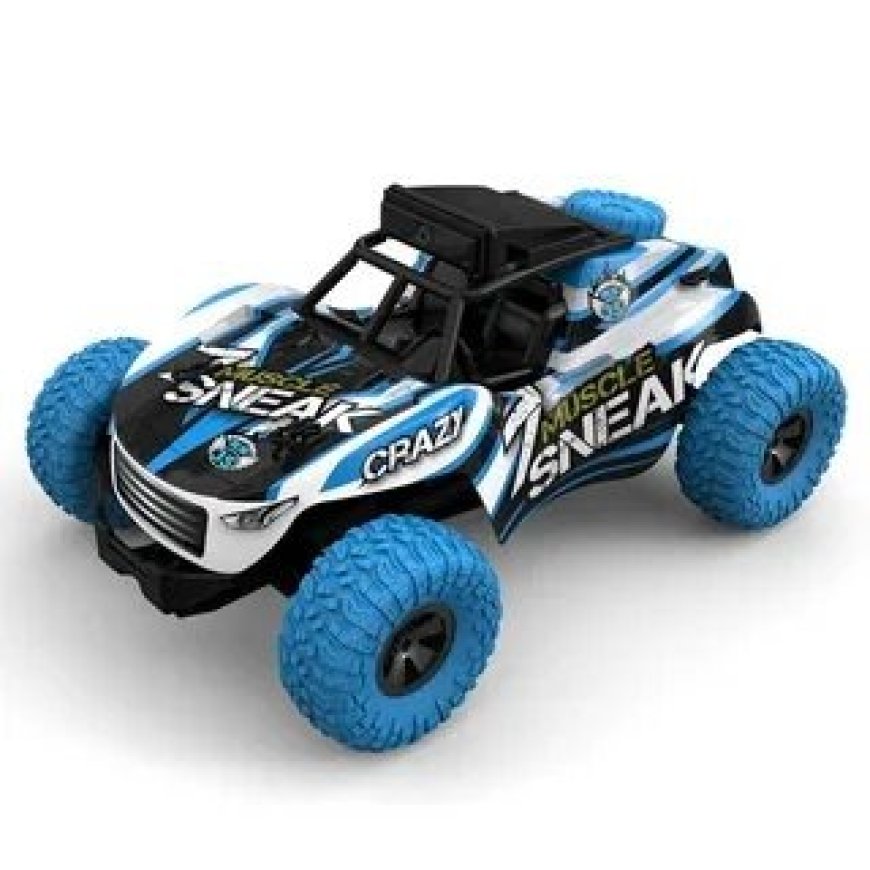RC Toy Car Troubleshooting: Common Issues Solved

Remote control cars are exciting and entertaining, but theyre not immune to problems. Whether your rc toy car suddenly stops working, fails to steer, or loses signal mid-run, knowing how to fix common issues can save time, money, and frustration. This comprehensive guide helps you identify and solve the most frequent rc toy car problems so you can get back to enjoying the ride.
Power Failures: When the Car Doesnt Turn On
Battery Connection Issues
One of the most common reasons an rc toy car wont start is a loose or improper battery connection. Make sure the battery is securely plugged in and that the terminals are clean. Any corrosion or misalignment can interrupt the power supply.
Weak or Dead Battery
If your rc toy car doesn't respond even after a full charge, the battery might be worn out. Batteries lose capacity over time. Use a multimeter to check the voltage or try swapping in a new battery to confirm the issue.
Faulty On/Off Switch
The switch could be internally damaged or just dirty. Flip it back and forth a few times and clean around it gently. If the switch still fails, it may need to be replaced.
Remote Control Not Connecting to the Car
Remote Battery Problems
People often forget to check the remotes batteries. Weak or dead batteries in the controller can prevent signal transmission. Replace them and double-check the polarity.
Signal Interference
Devices like Wi-Fi routers or other electronics can interfere with the frequency used by your rc toy car. Move to an open outdoor area and test again to eliminate interference as the cause.
Antenna Damage
If your model has external antennas, inspect them for damage or bending. A broken antenna drastically reduces signal strength and may stop the car from receiving commands.
Motor Spins But the Car Doesnt Move
Gear Slippage
If you hear the motor running but the wheels dont turn, the gears might be stripped or disconnected. Open the gear housing and inspect for missing teeth or broken gears. Replace any damaged parts.
Broken Drive Shafts
Drive shafts connect the motor to the wheels. If theyre snapped or disconnected, power wont transfer. Gently rotate the wheels and feel for resistance or looseness.
Axle or Hub Issues
Sometimes, the problem lies with the wheel itself. Check the wheel hub for cracks or slipping. If the axle is broken, the wheel might spin freely without traction.
Steering Malfunctions: Car Doesnt Turn Properly
Misaligned Steering Trim
If your rc toy car pulls to one side, use the trim adjustment knob on your remote to fine-tune the steering. Small changes often correct alignment issues.
Damaged Steering Servo
The servo controls the movement of the front wheels. If the car doesnt turn when you steer, the servo may be faulty or disconnected. Listen for clicking noises or test with a spare servo if available.
Blockages or Dirt in Steering
Outdoor play can introduce dust, sand, or stones into the steering assembly. Clean the mechanism with a brush or compressed air to restore full movement.
Reduced Run Time or Overheating
Battery Capacity Too Low
Short run times often indicate low-capacity batteries. Check the mAh rating and consider upgrading to a higher capacity compatible with your rc toy car.
Overgearing
Using gears that are too large for your motor can cause overheating. If your car gets hot quickly, switch to a smaller pinion gear to reduce load and extend run time.
Lack of Cooling
Install heat sinks or cooling fans on your motor and ESC (Electronic Speed Controller). Proper airflow prevents heat buildup, especially during long or aggressive runs.
RC Toy Car Not Responding at All
ESC Failure
The ESC regulates power flow to the motor. If it malfunctions, your car wont move even if it powers on. Try recalibrating the ESC or replacing it if it shows signs of failure.
Receiver Not Bound to Transmitter
Sometimes the receiver and controller lose pairing. Follow your models instructions to rebind them. A blinking LED on the receiver often indicates binding issues.
Internal Wiring Damage
Look for burnt wires, discolored connectors, or any unusual smells. If you suspect a short circuit, avoid turning the car on again until the damaged components are replaced.
Strange Noises or Jittery Movement
Debris in Moving Parts
Clicking or grinding noises often mean something is stuck in the gear train or axles. Inspect and clean these areas thoroughly.
Worn Bearings
If your rc toy car makes a whining sound or feels rough while rolling, the bearings may be worn out. Replacing them improves performance and extends component life.
Unbalanced Tires
High-speed vibration could come from unbalanced tires. Make sure all wheels are seated properly and have no excess glue or warping. Some users even balance tires manually for smoother rides.
Preventive Maintenance Tips
-
Always clean your rc toy car after use, especially after running it outdoors
-
Check all screws and connections regularly to prevent parts from coming loose
-
Store batteries at the correct voltage and temperature to extend lifespan
-
Avoid water unless your model is rated as waterproof
-
Let the car cool down between runs to avoid overheating
Final Thoughts on Keeping Your RC Toy Car in Top Shape
Troubleshooting an rc toy car doesn't have to be complicated. Most issues stem from power, signal, or mechanical wear, all of which can be addressed with a bit of patience and regular maintenance. By learning how to spot and fix these problems, youll not only extend the life of your rc toy car but also enjoy smoother, more reliable performance every time you race or play. Keep these solutions in mind, and youll be better prepared to handle any challenge your remote-controlled ride throws your way.




































